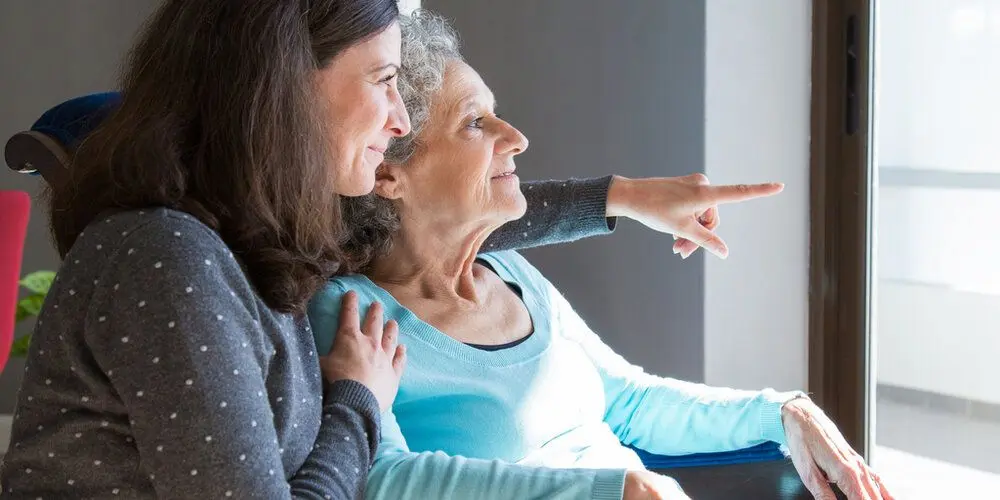Are Next of Kin Responsible for Care Home Fees?

Estimated Reading Time: 7 minutes
This article was reviewed by Sara Chapin, Director of Finance at Lottie, on 16th December 2024, to ensure accurate and trustworthy information for care seekers. Sara Chapin has been a Certified Public Accountant with the National Association of State Boards of Accountancy since 2017. Next review due December 2025.
When your loved one requires care and support within a care home, one of the most important things to sort out is how care will be paid for. If your loved one’s savings and assets exceed a certain amount (£23,250 in England), they’ll need to pay for their own care. Next of kin aren’t required to pay for care home fees, unless this is specifically mentioned in a care home contract.
In this article, we’ve explained whether you’re responsible for your next of kin’s care home fees, how financial assessments work, help with paying care home fees and how paying care home fees after your loved one passes away works.
Browse recommended local homes
Compare care homes with availability near you.
In this article:
- Are next of kin responsible for care home fees?
- Means tests and family assets
- Help with paying care home fees
- Is deprivation of assets to avoid care home fees a good idea?
- Paying care home fees after your loved one passes away
- Seeking expert legal advice
Are Next Of Kin Responsible For Care Home Fees?
It’s a common misconception that next of kin are legally responsible for their loved one’s care home fees. However, this isn’t the case. Family members (such as children, siblings or spouses) aren’t legally obligated to pay for their loved one’s care home fees, and the responsibility ultimately rests with your loved one, unless you’ve signed a contract with the care home saying you’ll pay.
There are ways you can help with your loved one’s care fees, such as through a top up fee, but again, you aren’t obliged to do so.
Means Tests And Family Assets
Care homes can be paid for in three ways:
Self-funding - The care seeker, their family members or friends pay for the entire of the care
Local council funding - The local council pays for some or all of the care
NHS funding - The NHS pays for part or all of your care
Whether your loved one pays for their own care or if they’re eligible for local authority funding depends on the results of a financial assessment, which works out the total value of your savings, income and assets (if you’re going into a care home).
A financial assessment follows a care needs assessment, which looks at the care somebody requires, and you can apply for a needs assessment by social services here.
Although personal assets like the value of a person’s home, savings, private and state pensions and benefits are included in a financial assessment, family assets aren’t included. We have an article explaining whether your son or daughter can continue living in your home if you go into care.
You should also bear in mind that if your parents jointly own a property but only one of them is going into care, the home won’t be included as part of their assets, provided the other will continue living in their home.

Help With Paying Care Home Fees
People above the threshold for care home funding support still have services and benefits available.
For example, NHS continuing healthcare is aimed at people assessed as having a ‘primary health need’. If eligible, the NHS will arrange and fund all care.
Another option is NHS-funded nursing care, where the NHS will pay for the nursing care you receive within a nursing home.
There are also benefits that care home self-funders may be eligible for, such as Attendance Allowance. This benefit is for people above the State Pension age with a condition or disability requiring additional care and support.
Third-party top-up fees
The amount of money provided by your local council to pay for your care may not be enough to pay for all care homes in your local area.
If there’s a care home your loved one would like to move into, but they can’t currently afford it, the remainder of the cost can be provided through a top up fee.
Here, your loved one’s local council will cover some of the care costs, and you’ll make up the remainder. It’s worth noting that your local council does need to provide at least one home that doesn’t require a top up, otherwise, you can ask for a revision of the budget.
A top up fee should only be considered necessary if you or your loved one are keen on a care home which offers an upgrade in some way from what your local council are willing to pay for, such as better care, improved facilities, a larger bedroom or an en-suite bathroom.
Selling a property
It’s estimated that every year, more than 40,000 people sell their homes to cover care fees. Some people have to sell their homes to pay for care home fees.
However, when you receive home care or you need short-term respite care, you won’t have to sell your own house, as this won’t be taken into consideration during a financial assessment.
If somebody else will be living in the property, such as your spouse or partner, you may be able to keep it too.
Deferred payment agreements
Through a deferred payment agreement, your local council will use the value of your home to pay your care home costs.
People enter these agreements to avoid selling their homes to pay for care - something that many end up doing otherwise.
Your assets, savings and income must be below the upper threshold in your country (£23,250 in England and Northern Ireland, £35,000 in Scotland and £50,000 in Wales) to be eligible for a deferred payment agreement. The total value of these will be worked out during a financial assessment. We have a guide explaining how financial assessments for care fees work here.
You’ll also need to pass additional eligibility checks before being granted a deferred payment agreement.
Is Deprivation Of Assets To Avoid Care Home Fees A Good Idea?
Passing on a family home to next of kin or putting it in a trust can lead to issues further down the road. Doing this is known as a deliberate deprivation of assets.
Some of the risks involved with deprivation of assets are:
- Your local authority may ask you to pay care home fees anyway, as if you still owned the asset
- You lose control over what happens to your house, and your next of kin can sell it without your permission
- If your children want to sell the house, they may have to pay capital gains tax as it isn’t their primary residence
Paying Care Home Fees After Your Loved One Passes Away
When someone dies, their care home will issue an invoice for any outstanding care home fees. Next of kin will not have to pay this, but instead, it will be taken from the person's estate. As next of kin, you don't have to pay these outstanding fees yourself (unless you've signed a contract saying you'll do so).
As next of kin, you don’t have to pay these outstanding fees yourself (unless you’ve signed a contract saying you'll do so).
If your loved one had a deferred payment agreement, these fees become a debt owed to their estate, due within 90 days of them passing away. The local authority may step in to help with this process.
Seeking Expert Legal Advice
If this is your first time dealing with care home fees and finance and you’re unsure about anything in this article, we recommend seeking further advice before making any decisions.
Your local integrated care board or your local council may be able to answer any questions you have.
Loading FAQs...
Loading the form...



